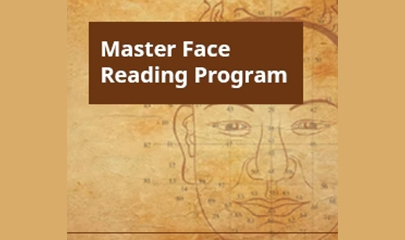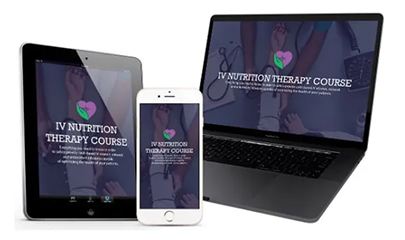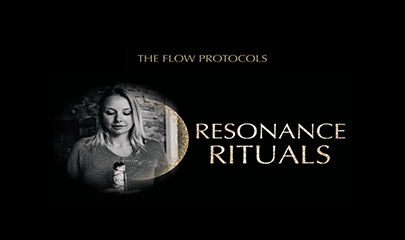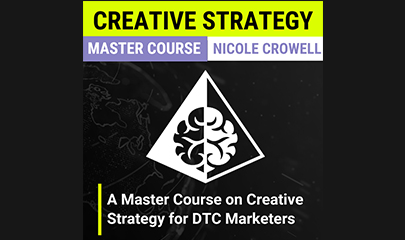-
×
 This Day in History: September By Wondrium
1 × $5,00
This Day in History: September By Wondrium
1 × $5,00 -
×
 Writing Great Chapters By Daniel David Wallace
1 × $23,00
Writing Great Chapters By Daniel David Wallace
1 × $23,00 -
×
 Kubera Energy Field - Kubera Mantra Energised 1008x By Spirituality Zone
1 × $15,00
Kubera Energy Field - Kubera Mantra Energised 1008x By Spirituality Zone
1 × $15,00 -
×
 Mace Masterclass Series 1-6 By Harbert - Dutch Flow Academy
1 × $78,00
Mace Masterclass Series 1-6 By Harbert - Dutch Flow Academy
1 × $78,00 -
×
 Hedge Fund Leads List Scripts And Contracts By Hedge Fund Leads
1 × $39,00
Hedge Fund Leads List Scripts And Contracts By Hedge Fund Leads
1 × $39,00 -
×
 Scripts and Verbiage for Contacting Pre-foreclosure By Sherralynn Arnold
1 × $15,00
Scripts and Verbiage for Contacting Pre-foreclosure By Sherralynn Arnold
1 × $15,00 -
×
 Oral Sex Mastery by Pleasure Mechanics
1 × $69,00
Oral Sex Mastery by Pleasure Mechanics
1 × $69,00 -
×
 Wired For Weight Loss By Mark Patrick
1 × $23,00
Wired For Weight Loss By Mark Patrick
1 × $23,00 -
×
 Review 01 by Renzo Gracie
1 × $6,00
Review 01 by Renzo Gracie
1 × $6,00 -
×
 Effortless Attraction Playbook: The secret model that a nerdy college guy discovered to get unlimited sex By Superman
1 × $15,00
Effortless Attraction Playbook: The secret model that a nerdy college guy discovered to get unlimited sex By Superman
1 × $15,00 -
×
 Real Estate Video Pro By Channel Junkies
1 × $15,00
Real Estate Video Pro By Channel Junkies
1 × $15,00 -
×
 Options Trading with Nick And Gareth By Nick Santiago And Gareth Soloway - InTheMoneyStocks
1 × $31,00
Options Trading with Nick And Gareth By Nick Santiago And Gareth Soloway - InTheMoneyStocks
1 × $31,00 -
×
 The Chase Formula By Jon Sinn
1 × $6,00
The Chase Formula By Jon Sinn
1 × $6,00 -
×
 The Everyday Gourmet: How to Master Outdoor Cooking By Bill Briwa & Patrick Clark
1 × $5,00
The Everyday Gourmet: How to Master Outdoor Cooking By Bill Briwa & Patrick Clark
1 × $5,00 -
×
 Million Dollar Masterclass By Eileen Wilder
1 × $85,00
Million Dollar Masterclass By Eileen Wilder
1 × $85,00 -
×
 Programming with Emerging Strategies By Mike Tuchscherer - Reactive Training Systems
1 × $209,00
Programming with Emerging Strategies By Mike Tuchscherer - Reactive Training Systems
1 × $209,00 -
×
 Master Face Reading Program By Lillian Pearl Bridges
1 × $544,00
Master Face Reading Program By Lillian Pearl Bridges
1 × $544,00 -
×
 The 3rd volume of the hugely successful 2GTS Program! - Sexual Mastery Club by 2 Girls Teach Sex
1 × $5,00
The 3rd volume of the hugely successful 2GTS Program! - Sexual Mastery Club by 2 Girls Teach Sex
1 × $5,00 -
×
 Full Certification Training - Modules 1-6 By Michael Sitzer
1 × $78,00
Full Certification Training - Modules 1-6 By Michael Sitzer
1 × $78,00 -
×
 A History of British India By Hayden Bellenoit
1 × $5,00
A History of British India By Hayden Bellenoit
1 × $5,00 -
×
 History Greatest Voyages of Exploration By Vejas Gabriel Liulevicius
1 × $5,00
History Greatest Voyages of Exploration By Vejas Gabriel Liulevicius
1 × $5,00 -
×
 E-Commerce Copywriting: The Key to Conversion By Carrie French
1 × $5,00
E-Commerce Copywriting: The Key to Conversion By Carrie French
1 × $5,00 -
×
 Memorial Day Bundle by Andy Elliott
1 × $5,00
Memorial Day Bundle by Andy Elliott
1 × $5,00 -
×
 Flipper University - Pro Flipper PLUS Package (Beg, Intermediate, Freight) By Flea Market Flipper
1 × $209,00
Flipper University - Pro Flipper PLUS Package (Beg, Intermediate, Freight) By Flea Market Flipper
1 × $209,00 -
×
 Master of Connection By John Keegan
1 × $209,00
Master of Connection By John Keegan
1 × $209,00 -
×
 The IV Therapy Academy Business Accelerator By Katherine Raver - Jason A. Duprat
1 × $233,00
The IV Therapy Academy Business Accelerator By Katherine Raver - Jason A. Duprat
1 × $233,00 -
×
 Portfolio Investing By Ron Bertino
1 × $54,00
Portfolio Investing By Ron Bertino
1 × $54,00 -
×
 The Performance Stretch System Level 1 By The Stretch Therapists
1 × $139,00
The Performance Stretch System Level 1 By The Stretch Therapists
1 × $139,00
The Art of Verbal War
$5,00
The Art of Verbal War – Immediate Download!
Let’s embark on a captivating adventure to uncover remarkable insights that spark your curiosity and elevate your understanding
The Art of Verbal War
Overview

The Art of Verbal War
The essence of communication weaves its way through our daily interactions, forming the threads of our relationships, workplaces, and personal lives. The art of verbal war comprises the strategies and techniques employed to convey thoughts and emotions effectively, often in situations of conflict or persuasion. This multifaceted approach to communication is not merely about exchanging words but about the subtleties that underpin dialogue, engagement, and sometimes, confrontation. Mastering this skill is akin to learning a martial art, where finesse, discipline, and strategy come together to empower individuals in various scenarios, from casual conversations to high-stakes negotiations.
Understanding verbal warfare encompasses learning how to tune into the nuances of language, empowering individuals to articulate their thoughts with pinpoint precision, resonate with their audience, and ultimately, influence outcomes. This article seeks to explore the dimensions of verbal skills, from foundational elements to advanced techniques, creating a comprehensive overview of how effective communication can be cultivated and honed.
Understanding Verbal Skills
At its core, verbal skills encompass both spoken and written communication forms. They are akin to the tools in a craftsman’s toolkit, each serving a purpose in shaping interactions. Just as a painter uses different brushes to achieve desired effects, an individual uses various verbal techniques to convey messages effectively. The components of verbal skills include articulation, vocabulary, tone, and the structure of expressions, each contributing to creating a coherent message.
To illustrate, consider a chef who prepares a meal. Each ingredient must be selected carefully: the right spices to enhance flavor, the correct temperatures for perfect cooking. Similarly, in verbal communication, the choice of words establishes context, emotion, and clarity. A poignant example comes from recordings of speeches Martin Luther King Jr.’s “I Have a Dream” or Barack Obama’s addresses showcasing how powerful verbiage elicits profound emotional responses. Through understanding these skills, individuals can better navigate their conversations, resulting in more effective, meaningful exchanges.
Importance of Verbal Skills in Communication
The role of verbal communication cannot be overstated; it’s the backbone of human interaction. Verbal skills serve as the vessel through which ideas, feelings, and perspectives flow. Whether in personal relationships or professional settings, the ability to articulate thoughts clearly fosters understanding and collaboration. Effective communication can be compared to a bridge: it connects individuals, promoting stronger relationships and reducing miscommunication risks.
In a 2018 study published in the Journal of Communication, researchers found that effective communicators were perceived as more competent and confident, leading to better relationships and career advancements. Clarity in speech cultivates trust, allowing for genuine dialogues that can address potential conflicts before they escalate. Furthermore, strong verbal skills in educational environments increase student engagement, encourage participation, and enhance overall learning experiences.
The ability to express oneself effectively also extends beyond mere exchanges of dialogue; it lays the foundation for persuasion. Whether negotiating a raise in a job, requesting a favor, or rallying support for a cause, verbal skills significantly impact one’s effectiveness in influencing others.
Importance of Verbal Skills in Various Contexts
| Context | Importance |
| Personal Relationships | Builds trust, empathy, and deeper connections |
| Professional Settings | Enhances collaboration, presentation, and negotiation abilities |
| Educational Environments | Fosters engagement, understanding, and critical thinking |
| Public Speaking | Captivates audiences, effectively delivers messages |
Key Components of Effective Verbal Communication
Effective verbal communication draws from several key components that work synergistically to convey messages and foster understanding. Let’s delve into these essential elements:
- Clarity and Conciseness: Clear and concise expression is vital. Avoiding jargon and constructing straightforward sentences can make a significant difference. Much like a clear stream versus a muddied one, clarity fosters understanding, while confusion can derail conversations.
- Active Listening: Communication is a two-way street. Active listening attentively absorbing what others say encourages participants to feel valued and heard. Taking the time to process and respond to others contributes to more meaningful dialogue.
- Tone and Inflection: The tone employed can completely alter the meaning behind the words. A story told with excitement resonates differently than the same narrative recounted with a monotonous cadence. Adjusting one’s tone can significantly amplify the message’s impact.
- Non-Verbal Cues: Body language can either reinforce or contradict spoken words. Positive gestures, eye contact, and open postures often enhance the effectiveness of verbal communication. For instance, a confident posture can indicate reliability and engage listeners.
- Empathy and Emotional Intelligence: Communicating with empathy builds rapport and opens up space for honest exchanges. By recognizing and responding to emotions, individuals can tailor their messages to resonate with their audience or counterpart.
- Adaptability: Different settings call for unique communication styles. Tailoring language according to the audience’s background, preferences, and probable emotional state can wield powerful results in how the message is received.
Each of these components contributes towards a robust foundation of verbal skills, facilitating not just effective communication but also empowering individuals to influence and engage successfully.
Enhancing Persuasion and Influence Abilities
Division between being knowledgeable and being persuasive is a bridge that many seek to build. Understanding the mechanics of persuasion elevates mere dialogue into a potent tool for influence. Factors that enhance persuasive ability often involve both appeal and credibility. Here are some pivotal strategies:
- Establishing Credibility (Ethos): One must demonstrate competence and trustworthiness. By sharing relevant experiences, credentials, or citing reliable sources, an individual can assert authority in discussions.
- Logical Arguments (Logos): Employing data and logical reasoning provides listeners with solid grounds to align with your viewpoint. Citing studies or using statistics can amplify credibility.
- Emotional Appeal (Pathos): Storytelling can be dynamic. Crafting narratives that connect with the audience emotionally creates a pathway toward influence. The human experience resonates universally, which makes poignant stories powerful tools.
Communication example: “Imagine you are in a negotiation about a pay raise. Instead of simply stating your worth based on tenure, you could share a detailed account of your contributions to a successful project, combined with statistical evidence of your department’s growth attributed to your efforts. By painting the picture through ethos, logos, and pathos, your argument becomes not just a request but a compelling narrative.”
By honing these skills, individuals can enhance their persuasive abilities, ultimately transforming interactions into powerful exchanges that foster collaboration, agreement, and mutual understanding.
Strategies for Mastering Verbal Confrontations
Mastering verbal confrontations requires both preparation and practice to confront conflict without losing clarity or respect. Here are some strategies aimed at creating healthier dialogues in moments of tension:
- Prepare Key Points: Before engaging in a confrontation, identify key points you wish to address. Tailoring these to align with the other party’s perspective can create an atmosphere conducive to resolution.
- Practice Role-Playing: Simulate confrontational scenarios with a friend or colleague. This allows one to rehearse responses, refine vocal delivery, and minimize anxiety when facing genuine challenges.
- Stay Calm: Maintaining composure is crucial. Emotions can cloud judgment; a deep breath and a moment to gather thoughts can prevent overly emotional responses, leading to clearer, calmer dialogue.
- Use “I” Statements: Framing concerns through “I” statements (e.g., “I feel overlooked when I don’t receive feedback”) avoids placing blame while clearly articulating feelings. This approach encourages open-mindedness and reduces defensiveness.
- Recognize Verbal Pitfalls: Be mindful of common conversational traps such as interruptions or turning the dialogue into personal attacks. Steering clear of these pitfalls can maintain focus on the issue at hand and promote healthy discussion.
By applying these strategies in confrontational situations, individuals can approach verbal conflicts with greater confidence and effectiveness, transforming potential chaos into constructive dialogue.
Daily Practices to Improve Verbal Fluency
Improving verbal fluency involves a dedication to daily practices designed to enhance eloquence, vocabulary, and articulation. Here are some practical suggestions for integrating improvement into everyday routines:
- Reading Aloud: Engaging in regular reading sessions, especially of diverse materials, allows an individual to practice pronunciation, rhythm, and intonation, enhancing fluency.
- Daily Vocabulary Exercises: Introduce a word-a-day practice, exploring its meanings, synonyms, and usage in sentences. Gradually integrating new vocabulary into daily conversations can expand one’s expressiveness.
- Engaging in Discussions: Participating in discussions on familiar topics helps to build confidence. The familiarity with the subject matter allows for smoother articulation of thoughts.
- Public Speaking Opportunities: Seek out opportunities to present in front of groups, even if small. This practice builds comfort in speaking and articulating ideas under stress.
- Recording and Playback: Record your conversations or speeches, and listen to them afterward to identify areas for improvement in fluency, clarity, and tone.
By dedicating time each day to practice, individuals cultivate smoother communication and an increased ability to express themselves fluently.
Techniques for Dominating Verbal Exchanges
Dominating verbal exchanges requires an arsenal of techniques to ensure effective communication while maintaining authority and respect. Here are some insightful strategies:
- Leverage Active Listening: Engaging fully with the speaker not only shows respect but also provides insights that can be used to steer the conversation constructively.
- Stay on Message: Keep discussions focused on the main topic. Distractions can derail the effectiveness of the conversation; a well-structured argument resonates better than rambling speech.
- Use Pauses Effectively: Judicious pauses can heighten anticipation and emphasize points, allowing time for both you and your audience to digest information.
- Ask Thoughtful Questions: Questions encourage dialogue. They can guide conversations, clarify misunderstandings, or evoke deeper thinking, leading to a more engaging exchange.
- Maintain Composure: Even in heated conversations, staying calm keeps the dialogue respectful and prevents it from escalating into conflict.
Implementing these techniques equips individuals to navigate verbal contests and exchanges with a level of competence that fosters productive communication.
Identifying and Overcoming Common Verbal Pitfalls
Understanding common verbal pitfalls is crucial in mastering effective communication. Here are some pitfalls to be aware of and strategies to overcome them:
- Interruptions: Interrupting others can create misunderstandings and signal disrespect. Combat this by practicing patience, allowing speakers to finish their thoughts before responding.
- Jargon and Overly Complex Language: Using technical language can alienate others. Referencing common terms can make communication more inclusive and accessible.
- Generalizations: Overgeneralizing or making assumptions about others’ perspectives can lead to faulty conclusions. Instead, ask clarifying questions to better understand their viewpoints.
- Defensiveness: A defensive reaction during discussions can hinder productive exchanges. Prepare mental strategies for managing emotions, ensuring thoughtful and measured responses.
- Neglecting Non-Verbal Cues: Ignoring body language can lead to misinterpretations. Pay attention to cues, both your own and those of others, and adjust your verbal delivery accordingly.
By identifying these pitfalls, individuals are better equipped to navigate conversations more effectively and engage in productive, meaningful exchanges.
Course Offerings and Resources
A range of courses and resources offers valuable tools for enhancing verbal skills and communication strategies. Here’s a summary of key offerings:
- Double Your Verbal Fluency In 30 Days: A program focused on exercises aimed at significantly improving access to vocabulary and articulation.
- The Million Dollar Mouth: This course emphasizes impactful speaking skills, aimed at engaging and captivating audiences effectively.
- NPP: Non-Persuasion Persuasion System: A three-step method that enhances persuasion skills without employing manipulative tactics.
- High Energy Badass: Designed to increase personal energy levels, enabling individuals to exude charisma and warmth.
- Verbal Self-Defense for the Socially Intelligent System: This course teaches techniques to handle social challenges while maintaining a sense of confidence and competence.
- Master of Metaphor: Focusing on the use of metaphors to enhance persuasive communication through both spoken and written language.
By exploring these resources, individuals can find tailored programs that suit their needs while cultivating their verbal skills and communication finesse.
Overview of Available Programs
The available programs aim to cater to various needs, ranging from personal development to professional enhancement. Below is a detailed overview of program offerings:
| Program | Focus Area |
| **Double Your Verbal Fluency In 30 Days** | Enhancing verbal fluency with structured exercises |
| **The Million Dollar Mouth** | Cultivating impactful speaking skills |
| **NPP: Non-Persuasion Persuasion System** | Improving subtle persuasive skills |
| **High Energy Badass** | Increasing energy and personal charisma |
| **Verbal Self-Defense** | Strategies for managing verbal confrontations |
| **Master of Metaphor** | Utilizing metaphors to enhance communication effectiveness |
Each program provides a unique approach to enhancing verbal skills, offering participants the opportunity to choose paths that align with their specific goals and aspirations.
Reviews of “Double Your Verbal Fluency in 30 Days”
The “Double Your Verbal Fluency in 30 Days” program is garnering praised reviews for its practical approach to enhancing verbal communication. Participants describe the program as straightforward and manageable, noting the structured daily exercises that facilitate improved fluency. Here are some insights from reviews:
- User-Friendly Exercises: Many reviewers appreciate the clear layout and accessibility of the exercises, which they found easy to integrate into their daily routines.
- Immediate Impact: Users have reported noticeable enhancements in their ability to articulate thoughts and respond more fluidly in conversations.
- Supportive Community: Members often share experiences, fostering motivation and encouragement among participants. This aspect provides a collaborative atmosphere, enhancing the learning experience.
- Valuable Insights: Feedback indicates that the program shapes not only verbal fluency but also overall communication confidence, with individuals noting improvement in both personal and professional spheres.
In summary, participants have experience substantial progress in their verbal abilities through the “Double Your Verbal Fluency in 30 Days” program, making it a highly recommended resource for anyone seeking to elevate their communications skills.
Recommended Literature for Further Learning
Engaging with literature focused on verbal communication can deepen understanding and offer new perspectives. Below are highly regarded books to explore:
- “Younger Brain, Sharper Mind” by Dr. Eric Braverman: Offers insights into cognitive functions that directly influence verbal abilities.
- “Change Your Brain, Change Your Life” by Dr. Daniel Amen: Discusses brain health’s impact on cognitive performance, interlinking thought processes with verbal communication.
- “Talk Like TED” by Carmine Gallo: An exploration of effective public speaking through analyzing successful TED Talks, providing actionable techniques.
- “Crucial Conversations” by Kerry Patterson et al.: Focuses on navigating high-stakes discussions, offering strategies for maintaining clarity even under pressure.
By delving into these literature pieces, individuals can continue to enhance their verbal skills while gaining insightful perspectives on effective communication strategies.
Practical Applications of Verbal Techniques
Understanding and applying verbal techniques can lead to significant improvements in personal and professional relationships. Here are various applications of verbal skills:
- Networking and Relationship Building: Engaging in effective conversation techniques fosters stronger connections with peers and professionals, leading to collaborative opportunities.
- Conflict Resolution: Implementing strategies learned can help in effectively resolving disputes and misunderstandings, paving the way for amicable solutions.
- Career Advancement: Enhanced verbal communication is directly correlated with career growth. Expressing ideas clearly during meetings or presentations showcases competence and dedication.
Verbal Skills in Professional Settings
Verbal skills serve as the backbone of effective communication in professional settings. Here’s how these skills manifest in the workplace:
- Active Listening: In team meetings, using active listening fosters a collaborative atmosphere, ensuring everyone’s voice is heard.
- Clear Articulation: Being concise and clear during presentations enhances understanding, ensuring the audience correctly absorbs important information.
- Constructive Feedback: Providing clear and actionable feedback helps teams improve continuously and fosters a culture of open communication.
- Effective Negotiation Skills: Clear communication allows professionals to articulate their needs and understand others, leading to successful negotiation outcomes.
Mastering these verbal skills can elevate workplace dynamics and foster a culture of collaboration and progress, transforming environments into hubs of innovation and success.
Using Verbal Skills for Personal Development
Fostering personal development through verbal skills involves harnessing these techniques in everyday exchanges. Here are practical applications:
- Self-Expression: Becoming more articulate helps in sharing thoughts and feelings openly, fostering deeper connections with friends and family.
- Confidence Building: Regular practice of verbal communication techniques allows individuals to express themselves with greater confidence, impacting various facets of life.
- Community Involvement: Engaging in public speaking or group discussions allows individuals to voice opinions and advocate for issues they are passionate about.
- Emotional Intelligence Development: Learning to articulate emotions thoughtfully enhances relationships and promotes self-awareness, making communication more efficient and enriching.
Through the continuous application of verbal techniques, individuals can realize substantial personal growth and strengthened interpersonal dynamics in all areas of life.
Case Studies of Successful Communication
Effective communication plays an instrumental role in shaping successful interactions in various contexts. Here are some relevant case studies:
- Corporate Negotiations: In a study detailing successful corporate negotiations, participants who practiced active listening reported greater negotiation satisfaction and results than those who didn’t. Sharing information openly led to win-win conclusions.
- Public Speaking Success: Analyzing TED Talks demonstrates that speakers employing storytelling techniques not only engage audiences but also solidify their message, showcasing the power of emotional connection through verbal communication.
- Conflict Resolution in Teams: A case study highlighting team dynamics revealed that teams utilizing structured communication strategies reported lower conflict levels and increased project efficiency. This illustrates how verbal skills can cultivate a collaborative environment.
Embedding effective communication principles from these examples into practice encourages individuals to connect deeper and navigate complex dialogues with proficiency.
Evaluating Personal Progress and Growth
Evaluating progress in verbal skills is vital for identifying areas of improvement. Here are several metrics by which individuals can assess their growth:
- Self-Reflection: Regularly assess personal communication experiences and interactions to identify patterns and potential growth areas.
- Peer Feedback: Solicit constructive criticism from colleagues or friends on effectiveness during conversations or presentations, fostering an understanding of performance levels.
- Goal Setting: Establish specific verbal skill goals (e.g., improving public speaking) and track progress over time, facilitating accountability and improvement.
- Record Improvements: Keep a journal documenting milestones achieved, difficulties faced, and strategies that worked well. Review this regularly to celebrate successes and adjust strategies as needed.
Through ongoing evaluation, individuals can sustain growth in their verbal skill development.
Feedback Mechanisms and Their Role
Feedback mechanisms serve as essential tools in refining verbal skills and enhancing educational experiences. Key aspects include:
- Immediate Feedback: Engaging in dialogues where real-time feedback is given helps clarify misunderstandings instantaneously, promoting efficient communication.
- Constructive Criticism: Understanding how to provide and receive criticism is vital for growth. Framing feedback positively encourages a growth mindset and fosters improvements.
- Reflection: Regularly reflecting on feedback received can enhance personal awareness and accountability. This self-awareness allows individuals to adjust their communication style effectively.
- Peer Support: Creating environments where peers feel comfortable giving each other feedback strengthens relationships and uplifts collective communication skills.
By recognizing the important role feedback plays in enhancing verbal abilities, individuals are better equipped to grow and develop continuously.
Long-Term Benefits of Advanced Verbal Skills
The long-term advantages of developing advanced verbal skills echo across personal and professional domains. Here are some benefits:
- Enhanced Relationships: Strong verbal communication fosters deeper connections. Individuals with advanced communication skills tend to build stronger networks, facilitating collaboration.
- Career Advancement: Individuals excelling in verbal communication are often preferred for leadership roles or promotions, as they effectively articulate thoughts and persuade others.
- Reduced Conflict: Proficient verbal skills lead to clearer expressions of thoughts and emotions, significantly minimizing misunderstandings and conflict resolution.
- Greater Self-Confidence: The ability to communicate effectively fosters a sense of empowerment, contributing to enhanced self-esteem and personal growth.
The art of verbal communication not only facilitates personal expression but also lays the groundwork for sustainable success across various aspects of life, making it a critical area for continuous improvement and mastery.
In conclusion, the art of verbal warfare transcends mere words, embodying strategies that empower individuals to engage in meaningful, influential dialogues. By harnessing components like clarity, active listening, and emotional intelligence, anyone can navigate the complexities of communication effectively. Ultimately, the pursuit of honing these skills serves to enrich personal interactions, foster professional advancement, and cultivate a profound understanding of the shared human experience.
Frequently Asked Questions:
Innovation in Business Models: We use a group purchase approach that enables users to split expenses and get discounted access to well-liked courses. Despite worries regarding distribution strategies from content creators, this strategy helps people with low incomes.
Legal Aspects to Take into Account: Our operations’ legality entails several intricate considerations. There are no explicit resale restrictions mentioned at the time of purchase, even though we do not have the course developers’ express consent to redistribute their content. This uncertainty gives us the chance to offer reasonably priced instructional materials.
Quality Control: We make certain that every course resource we buy is the exact same as what the authors themselves provide. It’s crucial to realize, nevertheless, that we are not authorized suppliers. Therefore, the following are not included in our offerings: – Live coaching sessions or calls with the course author.
– Entry to groups or portals that are only available to authors.
– Participation in closed forums.
– Straightforward email assistance from the writer or their group.
Our goal is to lower the barrier to education by providing these courses on our own, without the official channels’ premium services. We value your comprehension of our distinct methodology.
Be the first to review “The Art of Verbal War” Cancel reply
You must be logged in to post a review.
Related products
Personal Development
Personal Development
Persuasion In Action Total Immersion Video Footage Collection By Ross Jeffries
Personal Development
Human Design Business Kickstart Bundle 2024 By Becca Francis
Personal Development
Abundance And Money Workshop Replay By Samantha Chung & Gina Bourne
Personal Development
Personal Development
Training the Electric/Magnetic Lines of Force with Movement By Sixty Skills
Personal Development
The Performance Stretch System Level 1 By The Stretch Therapists















Reviews
There are no reviews yet.